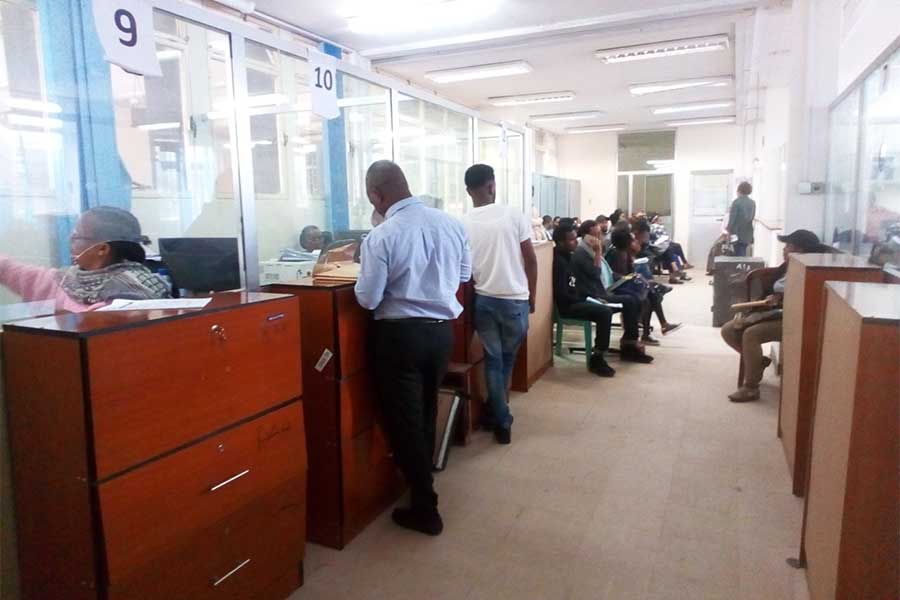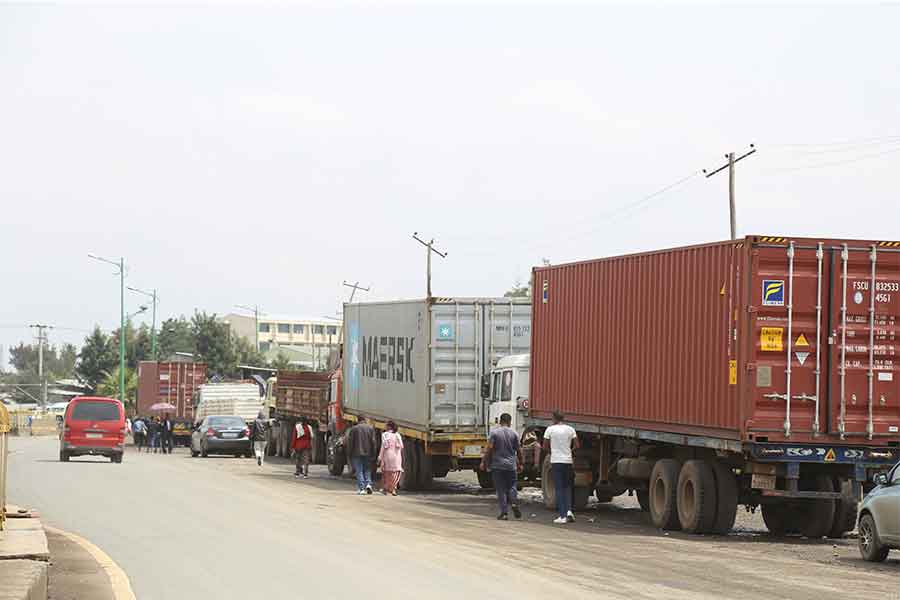
Featured | Apr 22,2023
Jul 26 , 2025
By Eden Sahle
In recent months, a troubling pattern has emerged across Ethiopian businesses: a wave of rogue accountants exploiting the very companies they are meant to serve. Once viewed as custodians of financial integrity, these professionals now pose a threat to the lifeblood of small and medium-sized enterprises. What's unfolding is not mere negligence or poor service; it is coercion and, in some cases, extortion. Small businesses, especially, are finding themselves ensnared in a battle they never anticipated.
Two companies I know recently confided similar ordeals with their accountants. In both cases, accountants withheld critical financial documents and demanded large sums of money in exchange for their return. They also threatened to file false reports with the customs commission. One company paid hundreds of thousands of birr to avoid confrontation and keep its operations running.
The other remains locked in a legal and operational nightmare, unable to recover its data. These are not isolated stories. At social gatherings, more business owners are speaking up about accountants abusing their access for personal gain. What was once considered a rare form of malpractice is becoming a mainstream method of extortion, with tangible consequences.
The tactics used are disturbingly simple yet devastatingly effective. Many SMEs entrust the complete control of their finances to a single in-house accountant. That person holds access to sensitive records—payroll, tax filings, invoices, and more. In a healthy setup, this trust fuels financial stability. However, in the wrong hands, it becomes a weapon.
Some accountants threaten to report their employers for tax evasion or underreporting, which can trigger audits through anonymous tips. Even unfounded accusations can lead to frozen bank accounts, penalties, and reputational damage. Without access to documents, companies are left powerless, their operations suspended in uncertainty.
This crisis stems from a web of weak regulation, institutional loopholes, and digital vulnerability. Too many businesses trust too quickly. Few establish internal checks. Fewer still maintain backups. The profession itself lacks accountability. Licensing requirements are minimal, and oversight is patchy. As a result, unethical actors operate freely, confident they will never be held to account.
The continued reliance on manual accounting compounds the risk. Secure digital platforms, like Odoo, endorsed by the government, offer audit trails, data protection, and continuity. But implementation costs run into the millions. Most small businesses can't afford them. A digital divide has opened up: large firms can shield themselves; smaller ones are exposed.
Startups and informal businesses suffer most. One accountant is expected to do everything—recording, filing, managing payroll. It’s cost-effective, but dangerously centralised. If that person turns rogue, there are no safeguards in place. Owners face a terrible choice: pay up or lose everything.
What was once considered a rare form of malpractice is becoming a mainstream method of extortion.
This isn’t just a technical or legal problem. It’s a direct threat to the future of Ethiopia’s small enterprises. If trust in professional services erodes, so too does business confidence. Innovation, job creation, and economic diversification all take a hit.
The emotional toll is no less severe. Victims often feel ashamed or unsure where to turn. Speaking out feels risky. Legal options are murky. And without industry standards or clear complaint systems, justice remains elusive.
Change must come from all fronts. First, professional certification and licensing must be strengthened. An independent body should regulate the field, empowered to enforce ethics and revoke credentials. Businesses must also retain the right to access their records, no matter who manages them.
Customs authorities must revise their procedures for processing whistleblower reports. A pre-audit verification unit could help screen malicious tips and focus on credible claims. For businesses, even that layer of protection could make all the difference.
Internally, resilience is vital. Even basic digital tools, whether free or low-cost, can offer some level of security. Open-source software, if properly backed up and shared across stakeholders, can break the dependence on a single individual. Odoo and similar platforms should be subsidised for SMEs or supported through private partnerships.
Education matters too. Entrepreneurs need training in basic bookkeeping, fraud prevention, and digital literacy. With knowledge comes protection. Every startup should be equipped with the tools to guard against manipulation.
Business associations must also play a role. They can vet accountants, offer support, and publish blacklists of offenders. A central complaint platform would help victims speak out while protecting their identities. Exposure is a rogue accountant's greatest fear.
If we stay silent, the problem will fester. But if business owners speak up and support one another, they can confront it. Ethical accountants still exist, many, in fact. However, those who weaponise their access are jeopardising not only individual companies but the economy as a whole.
Trust is the bedrock of commerce. It must be earned, monitored, and protected. Accountants are meant to be guardians of the truth. When they become the enemies, we all lose.
PUBLISHED ON
Jul 26,2025 [ VOL
26 , NO
1317]

Featured | Apr 22,2023

Featured | Jan 15,2022

Commentaries | Jul 31,2021

Fortune News | Dec 04,2022

Agenda | Apr 06,2019

Featured | Aug 24,2019

Fortune News | Apr 04,2020

Fortune News | Jul 13,2019

Featured | Dec 29,2018

Advertorials | May 27,2024

Photo Gallery | 177336 Views | May 06,2019

Photo Gallery | 167543 Views | Apr 26,2019

Photo Gallery | 158193 Views | Oct 06,2021

My Opinion | 136982 Views | Aug 14,2021
Commentaries | Oct 25,2025

Dec 22 , 2024 . By TIZITA SHEWAFERAW
Charged with transforming colossal state-owned enterprises into modern and competitiv...

Aug 18 , 2024 . By AKSAH ITALO
Although predictable Yonas Zerihun's job in the ride-hailing service is not immune to...

Jul 28 , 2024 . By TIZITA SHEWAFERAW
Unhabitual, perhaps too many, Samuel Gebreyohannes, 38, used to occasionally enjoy a couple of beers at breakfast. However, he recently swit...

Jul 13 , 2024 . By AKSAH ITALO
Investors who rely on tractors, trucks, and field vehicles for commuting, transporting commodities, and f...

Oct 25 , 2025
The regulatory machinery is on overdrive. In only two years, no fewer than 35 new pro...

Oct 18 , 2025
The political establishment, notably the ruling party and its top brass, has become p...

Oct 11 , 2025
Ladislas Farago, a roving Associated Press (AP) correspondent, arrived in Ethiopia in...

Oct 4 , 2025
Eyob Tekalegn (PhD) had been in the Governor's chair for only weeks when, on Septembe...

Oct 25 , 2025 . By YITBAREK GETACHEW
Officials of the Addis Abeba's Education Bureau have embarked on an ambitious experim...

Oct 26 , 2025 . By YITBAREK GETACHEW
The federal government is making a landmark shift in its investment incentive regime...

Oct 26 , 2025 . By NAHOM AYELE
The National Bank of Ethiopia (NBE) is preparing to issue a directive that will funda...

Oct 26 , 2025 . By SURAFEL MULUGETA
A community of booksellers shadowing the Ethiopian National Theatre has been jolted b...